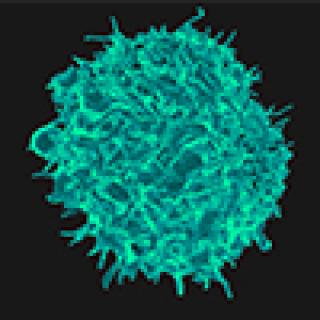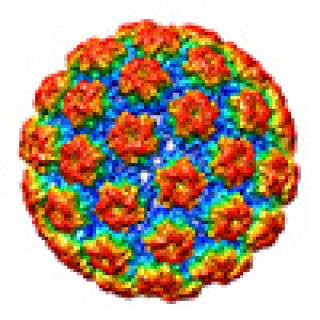News and Events
Celebrating CCR Careers: Alan Rein, Ph.D.
Alan Rein, Ph.D., is a known expert in the field of viral assembly, particularly in retroviruses like the human immunodeficiency virus (HIV). After an extensive career studying molecular mechanisms of retroviral replication and pathogenesis, he has announced his retirement.
Read MoreElaine Jaffe inducted as honorary fellow of the Royal College of Pathology of Australasia
Elaine Jaffe, M.D., Senior Investigator in the Laboratory of Pathology, was recently inducted as an honorary fellow of the Royal College of Pathology of Australasia. The fellowship recognizes the work and publications of a haematophathologist that have influenced and improved haematopathology practice worldwide.
Read MoreCCR Presentations at AACR - 2019
The American Association for Cancer Research (AACR) Annual Meeting covers the latest discoveries across the spectrum of cancer research—from population science and prevention; to cancer biology, translational, and clinical studies; to survivorship and advocacy—and highlights the work of the best minds in research and medicine from institutions all over the world. The 2019 AACR Meeting, "Integrative Cancer Science • Global Impact • Individualized Patient Care", will be held in Atlanta, between March 29 - April 3, 2019. View the list of CCR presentations...
Read MoreFrom father to daughter: A bone marrow transplant for GATA2 deficiency
James and Jahleel are a father-daughter duo from Tennessee who came to NIH for Jahleel’s bone marrow transplant. Jahleel was diagnosed with GATA2 deficiency, a rare genetic disease that causes a wide range of symptoms, including myeloid leukemias.
Read MoreDeep-imaging study reveals extensive variability in 3D configuration of genomes between cells
A new study analyzing chromatin in single cells using advanced imaging methods, led by CCR Director Tom Misteli, Ph.D., has revealed more heterogeneity in the 3D configuration of genomes than previously thought.
Read MoreNew strategy for treating brain tumors with mutations in metabolic enzymes
Cancers with mutations in key metabolic enzymes disrupt oxygen metabolism and cause a buildup of reactive oxygen species in mice. This mutation is found in about 80 percent of grade II/III gliomas, or brain tumors, in humans. By inhibiting the action of a protein that allows cancer cells to survive, investigators have potentially found a new strategy for treating cancers with these mutations.
Read MoreRecap: Grand Rounds with Felicia Knaul, Ph.D.
Nearly 200 CCR staff attended a special Grand Rounds lecture this month featuring Felicia Knaul, Ph.D., an expert in palliative care. Dr. Knaul, a professor at the Leonard M. Miller School of Medicine and Director of the University of Miami Institute for Advanced Study of the Americas, discussed the unequal access to pain and palliative care around the world, particularly related to morphine for pain relief, and the critical importance of educating providers.The lecture, held February 1, was sponsored by CCR’s Women Scientist Advisors (WSAs).
Read MoreResearchers identify a key molecule that enhances T cell-based immunotherapy
The transcription factor c-Myb plays a critical role in regulating T cell stemness. Researchers showed that increasing expression of this transcription factor in T cells launches a powerful, long-lasting antitumor response in mice.
Read MoreSteve Rosenberg receives Szent-Györgi Prize for Progress in Cancer Research
Steve Rosenberg, M.D., Ph.D., Chief of the Surgery Branch, has received the 2019 Szent-Györgi Prize for Progress in Cancer Research. The award recognizes indivuduals with a seminal discovery or a body of work that has resulted in or led toward notable contributions to cancer prevention, diagnosis or treatment, and the discovery has had a lasting impact on the cancer field with a high direct impact of saving lives.
Read MoreDrug successfully treats WHIM syndrome
Researchers have discovered which genus of human papillomavirus (HPV) is responsible for warts found in patients with WHIM syndrome, a rare autoimmune disease, and determined the drug plerixafor could successfully treat those patients.
Read MoreGene mutations in Burkitt lymphoma hint at more effective treatment
Some cases of Burkitt lymphoma have long been thought to be caused by the Epstein-Barr virus. New research is revealing potential genetic mechanisms for how the virus could contribute to the disease.
Read More









